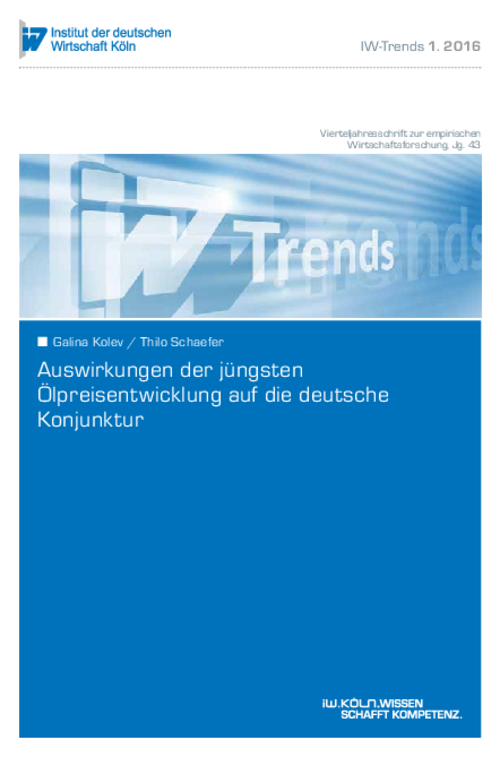At the beginning of 2016 the price for crude oil plummeted once again. Model simulations show that the greatest positive effect of this fall is to be expected in private consumption. The simulations examined what effect it would have on the national economy if the annual average oil price for the year 2016, assumed in autumn 2015 to be 60 U.S. dollars per barrel, were revised to 40 dollars per barrel. The volume of price-adjusted private consumption should then be some 7 billion euros or 0,5 percentage points higher due to the low oil price. Investment activity and German firms’ exports are also likely to be slightly more buoyant due to the fall in the oil price. However, the effect on the economy as a whole will remain minor as a significant portion of the additional expenditure will be on imported goods. Overall, in 2016 the low oil price can be expected to bring additional economic growth of about 0,2 percentage points.

Effects of the Latest Oil Price Development on the German Business Cycle
IW-Trends


Galina Kolev / Thilo Schaefer: Auswirkungen der jüngsten Ölpreisentwicklung auf die deutsche Konjunktur
IW-Trends

More on the topic

Effects of the Middle East conflict on the German economy
Beyond the humanitarian crisis associated with the geopolitical conflict in Israel, which affects millions of human lives, the Middle East conflict also leaves lasting marks on economic activity not only in the affected region, but also in Germany and the ...
IW
Corporate Insolvencies on the Increase
After a prolonged decline, the number of corporate insolvencies has begun to rise again. The slight increase in 2022 could be interpreted as a step towards normalisation after the sharp drop experienced during the 2020/21 Covid19 pandemic.
IW